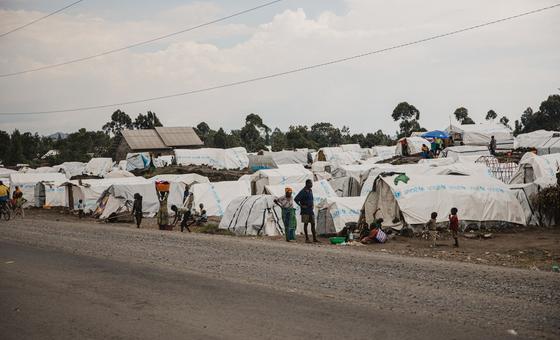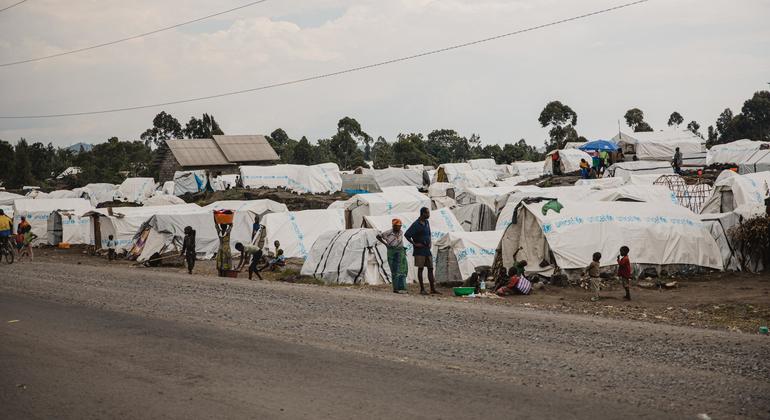
Fresh fighting since last week in the region has displaced an estimated 135,000 people from the town of Sake – on the northern banks of Lake Kivu – who are moving towards the provincial capital, Goma, about 25 kilometres away, according to UNHCR.
The agency further said that it received reports of bombs falling on civilian areas in Sake and Goma, where an estimated 65,000 internally displaced persons (IDPs) are sheltering, prompting “significant concerns” for their safety.
“The escalating use of heavy artillery and shelling in clashes around Goma poses grave threats to civilian and displaced populations, threatening more casualties and the destruction of buildings used as communal shelters,” UNHCR said.
The presence of unexploded ordnance poses a particular threat to children, it added, noting that since the first week of February, at least 15 civilians had been killed and 29 injured around Goma and Sake.
‘Tragic and unacceptable’ situation
Chansa Kapaya, UNHCR Regional Director for Southern Africa said that men, women and children have been targeted in relentless confrontations.
“The situation is tragic and unacceptable. We urgently call on all parties to protect civilians, respect humanitarian law and establish safe corridors for aid,” she said.
The indiscriminate bombing is amplifying the strain on already limited resources to accommodate 800,000 IDPs in the region, and 2.5 million displaced across North Kivu Province.
Access challenges
The violence continues to restrict access to isolated populations in Masisi territory and Rutshuru, compounding the challenges faced by humanitarian agencies in delivering essential assistance, UNHCR said.
With few viable options for safe passage from Goma, the growing displaced communities in the town face rapidly deteriorating conditions, it added.
UNHCR emphasized the imperative to safeguard the lives and well-being of civilians and those driven from their homes.
It also called for an immediate halt to fighting, and for urgent negotiations to resolve the conflict and alleviate the suffering of innocent civilians caught in the violence.
Floods, cholera outbreak
The fighting and displacement come against the backdrop of a devastating cholera outbreak and massive floods in January that wreaked havoc across the DRC.
Some 100,000 houses, 1,325 schools, 267 health facilities and large swathes of agricultural land have been damaged or destroyed as of last week, leaving an estimated two million people – nearly 60 per cent of them children – in need of assistance.



